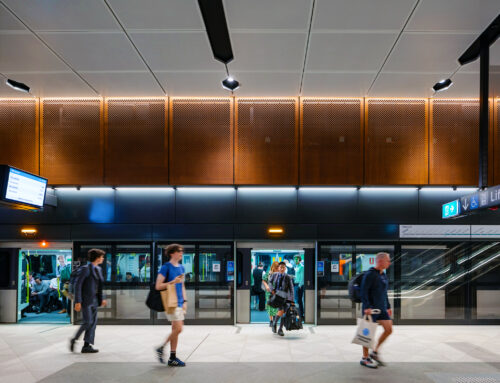The need for secure and affordable fuel and energy has long been recognised by governments and businesses around the world. As the cost of exploration, extraction and transport of traditional fossil fuels increases – as well as the understanding of their impact on the environment – the search for cheaper, more reliable alternatives has gained traction.
One of the most promising is bioethanol.
This is used both as a fuel for transport and for generating electricity on a commercial scale. NDY A Tetra Tech Company (NDY) is assisting Renewable Developments Australia (RDA) to develop a low cost bioethanol production facility at Pentland, a bioenergy facility near Charters Towers in North Queensland.
“Bioenergy is an exciting industry to be involved in,” says NDY Sustainability Consultant Nicki Parker. “It’s a complex project, but it’s a fantastic opportunity to show that alternative energy can be affordable, reliable, and have a lower environmental impact than some of the more common energy options. The global bioethanol market is expected to grow to 145 Billion litres in 2022. This creates enormous opportunities for facilities like Pentland to step into a market that is maturing rapidly.”
With the Pentland plant aiming to produce the lowest cost ethanol in the world, the project will start to demonstrate the innovative measures that Australia is exploring in order to meet their future emissions reduction.
The proposed development is located approximately 250 kilometres South-West of Townsville near Charters Towers. The facility produces ethanol using sugar cane and sweet sorghum that is harvested from the on-site 20,000 hectare farm. The biomass will be irrigated using bore water harvesting, integrated into a self contained water and sewage treatment, further minimising the resources needed for operation.
The Pentland Project is aiming to be lowest cost ethanol producer in the world by drawing on numerous innovative ideas and technologies. “The goal is for this project to serve as a ‘Proof of concept’ model for bioethanol production by looking at innovative ways to produce high efficiency sorghum, and minimising waste by using by-products as fuel, “says Nicki. “We expect that the project will do this successfully, and pave the way for the technology to be replicated throughout Australia, and internationally in countries where suitable land is available for growing feedstock. We can become a global leader in literally growing our own fuel.”
This ambitious project puts Australia at the forefront of biofuel production, and offers opportunities for employment, research and economic growth across Australia. The Pentland project is expected to create 500 jobs during construction and up to 200 jobs after construction is complete in addition to producing a carbon neutral renewable fuel.
The Process
Bioethanol is useable as a fuel replacement, or added to petroleum as an inexpensive way of increasing the octane rating. The Ethanol is produced from the source plants via a fermentation process using glucose derived from sugars, starches and cellulose extracted from sugar cane and sorghum. Sugarcane is a proven and extremely efficient converter of sunlight and water into energy and is considered one of the highest yielding energy crops available. Sorghum isn’t as popular on a global scale, due to most varieties of sorghum being native to Australia, and therefore less frequently adapted to this type of farming.
The fermentation process separates the glucose into ethanol and carbon dioxide. With the feedstock plants to close to the bioethanol distillery, the CO2 can be reabsorbed by the plants and the carbon released into the atmosphere can be minimised.
“The ability to recapture the CO2 byproduct is a definite added advantage of this project,” says Nicki. “It also future-proofs the concept if regulations surrounding carbon.”
The Pentland Advantage
The Pentland Project involves the development of a fully integrated sugarcane farming, processing and ethanol distillation facility. The traditional model of bioethanol generation involves a refinery sourcing plant material from a third party, which adds to the supply chain and expense. By co-locating the refinery and feedstock, the resources needed to source, transport and grow are minimised, while the quality can be tightly monitored and the harvesting programme adjusted to ensure supply at the required times.
The first generation processing is expected to yield approximately 190 million litres of high grade bioethanol. The facility is designed for expansion to include a 2nd generation ethanol production stage extracting a further 150 million litres of ethanol from the waste byproduct of the 1st stage ethanol production.
Production will increase to 344 million litres by June 2020 annually at an average price of 80c per litre, which equates to $280 million in export trade out of the region at least for the next 10 years.
The project is proposed to increase Australia’s ethanol production by 80%. This will lower our reliance on oil imports, while also providing technology and expertise that is readily exportable, as well as local jobs and development.
NDY provided water (raw, potable and irrigation), sewer, electrical, communications and fire reticulation services throughout the site to a preliminary design level. This allowed the project to attract funding from the Australian Renewable Energy Association (ARENA). NDY then progressed on to integrating this into the larger facility, and incorporating the services into vendor supplied machinery and plant.
“To contribute to a new industry that is providing jobs and training to so many people, as well as leveraging the innovative thinking of our people is immensely rewarding,” says Nicki. “The fact we can do it while also minimising the environmental impact of fossil fuels, and lowering the cost of fuel for all consumers is particularly exciting.”










